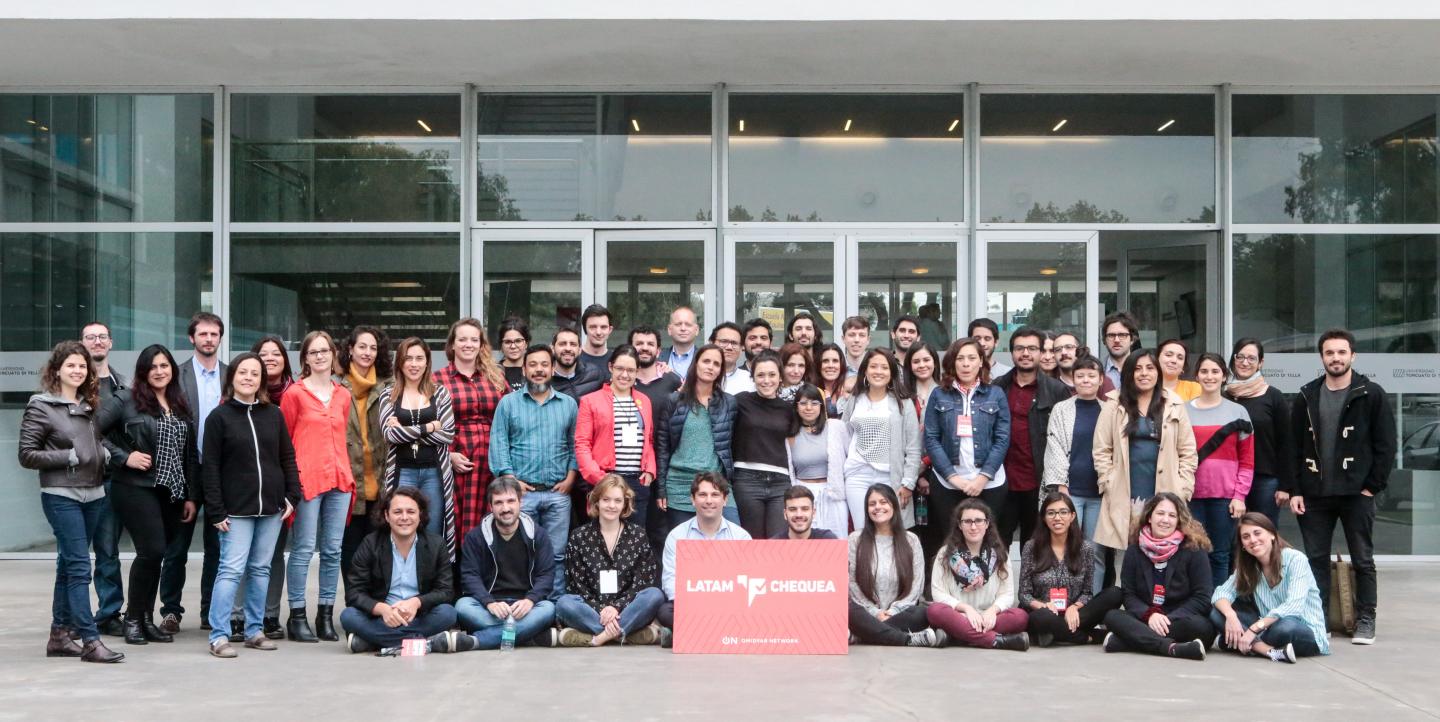Created in 2009, digital magazine Distintas Latitudes operated without an actual business model for its first seven years. Then in 2016, it discovered its potential — it could better thrive by collaborating with other news outlets.
It worked. Five years later, the outlet employs an eight-person team based across four countries.
“We believe that walking alone can get you there faster, but being part of a collective will get you farther,” Jordy Meléndez Yúdico, the co-director of Distintas Latitudes, told IJNet.
The Mexico-based outlet isn’t the only Latin American organization that has found strength in alliances. Whether it is to amplify impact, or just to share knowledge, collaboration among outlets in the region has become a key strategy for sustainable growth.
This year, Distintas Latitudes joined nine young, independent Latin American outlets in creating Coalición LATAM, an alliance that seeks to support its members as they grow. They are Argentina’s Revista Colibrí, Ecuador’s La Andariega, Peru’s Cápsula Migrante and La Antigona and Mexico’s EsParaMiTarea, Morras explican cosas, Memorias de Nómada, La Desvelada and Altavoz LGBT+.
According to Meléndez Yúdico, expectations for the coalition’s first year are “limited, but important.”
“Thanks to Distintas Latitudes’ operations capabilities and grant-seeking skills, we want for the other nine outlets to get its legal status, and help them with administrative and financial capacities,” he said.
Coalición LATAM has also launched an investigative collaborative project about youth and human rights in Mexico, Argentina, Ecuador, Venezuela and Peru, which it plans to publish later this year. In this first stage, each member was directly invited to participate, but the coalition hopes to publish guidelines to join the coalition in January 2022.
“At Coalición LATAM’s core, there is trust, a shared will to create another type of media and the urgent need to rethink the conditions under which journalism currently operates,” Meléndez Yúdico said.
[Read more: These five reporting initiatives in Latin America are changing their communities]
Managing collaborative work at a regional level comes with its own challenges, however. For Meléndez Yúdico, it requires keeping all participating media and people engaged. Trust and communication help with that. It also demands building consensus. “This forces us to be very careful and respectful of arguments when it comes to decision-making,” he said.
This type of collaborative work has become more commonplace in Latin America in recent years. In 2014, a group of fact-checkers in the region decided to create LatamChequea to connect with news outlets facing similar challenges. What started as a bi-annual event evolved into a network for knowledge sharing. Coordinated by Argentina’s Chequeado, more than 40 organizations now take part in the alliance.
“It has been key for creating trust among organizations, which allows us to move forward with projects in common,” said Olivia Sohr, Chequeado’s director of impact and new initiatives. According to her, the group’s diverse set of focuses and strengths have enabled important exchange of knowledge. “For example, Paraguay’s El Surti has the great skill to turn fact-checking and articles into appealing visual storytelling; Salud con Lupa has deep knowledge of public health matters, and other organizations are able to fact-check misinformation with a quick turnaround.”
When the pandemic hit in 2020, the alliance launched LatamChequea Coronavirus, gathering 35 organizations to fact-check and explain how COVID-19 was affecting the region. Moreover, it allowed outlets to rely on other members’ content to quickly respond to misinformation in each country.
“We believe that the network is crucial to better identify dynamics behind misinformation, which are regional in many cases,” Sohr explained.
Chani Guyot, CEO and publisher of the Argentine outlet RED/ACCIÓN, agrees that outlets in the region can share experiences and solutions to help better address common challenges. This belief is what underpins the work of Red de Periodismo Humano (Human Journalism Network, in Spanish), for example, another Latin American alliance created in 2021.
[Read more: Latin American outlets analyze 50 years of the war on drugs]
For RED/ACCIÓN, this idea emerged when it started to talk frequently with other Latin American outlets through initiatives such as the Velocidad Accelerator, training events offered by Google and Facebook, and activities through Fundación Gabo.
“We discovered that there were a variety of media working with a similar journalistic empathy around topics like immigration, the climate crisis, gender inclusion and human rights, among others,” said Guyot. They decided to create an alliance where members share their content, so some selected articles can be republished by others for free.
Peru’s Salud con Lupa, Ecuador’s GK, Colombia’s Cerosetenta, Chile’s Mi Voz, Venezuela’s La vida de nos, Mexico’s Lado B, and Cuba’s El Toque are all members of the Red de Periodismo Humano.
They have republished more than 100 articles to date, and the alliance estimates that, on average, this allowed it to increase each article’s reach by five times, according to Guyot.
The real impact, however, could be bigger than that. Working in collaboration with other Latin American organizations also enables Red de Periodismo Humano to create a space where local stories can inform international reporting. “The region shares some challenges, and those stories reveal problems and solutions that can be interesting beyond a country’s borders,” Guyot said.
Photo courtesy of Chequeado.


